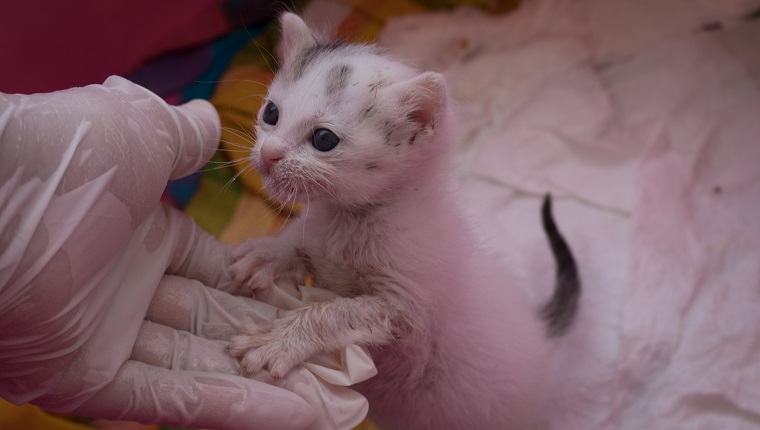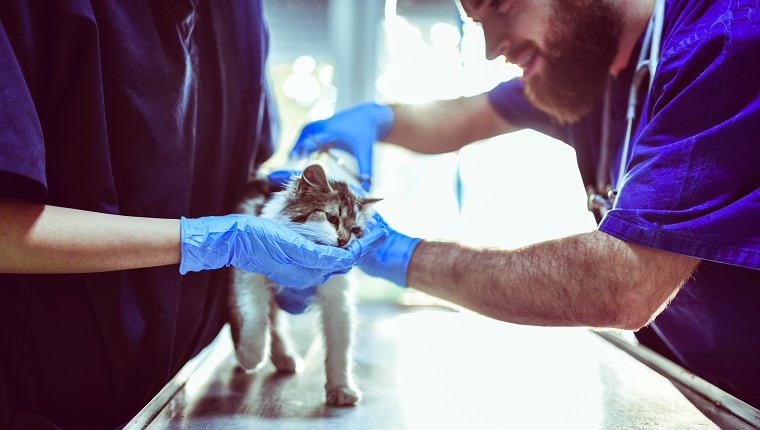Vesicourachal diverticula in cats is a condition that happens when part of a tube connecting the fetus’s urinary bladder to the placenta doesn’t close correctly. It’s usually a congenital condition and can lead to an abnormal flow of urine which, in turn, can bring about urinary tract infections.
The condition can remain throughout a cat’s life if a veterinarian doesn’t provide proper medical treatment.
If you see signs that your kitty might be suffering from this issue, then you must consult your veterinarian for a proper diagnosis and course of treatment. Here’s what you should know about the symptoms, causes, and treatments of vesicourachal diverticula in cats.
Symptoms Of Vesicourachal Diverticula In Cats
Vesicourachal diverticula in cats brings on symptoms that mostly affect the cat’s urination. Some of the most common symptoms include:
- Finding it difficult to urinate
- Reduced appetite
- Urinating more often than usual
- Weight loss
- Urine with blood present in it
Causes Of Vesicourachal Diverticula In Cats

The main causes of vesicourachal diverticula are often issues in the womb or problems during the birth.
Additionally, certain conditions that can place extra pressure on the bladder can cause a case of vesicourachal diverticula in cats later in life. Some of the common causes of a cat acquiring the condition after birth include stones, called uroliths, forming in the urinary tract and urinary tract infections caused by bacteria.
In general, studies suggest that male cats are more likely to develop this condition than female felines.
Treatments For Vesicourachal Diverticula In Cats
If you suspect your kitty is suffering from vesicourachal diverticula, your veterinarian will carry out a full physical examination. They’ll also ask about any recent medical history or issues.
Vets also frequently use blood tests and urine analysis to confirm their diagnosis. In many circumstances, they also use X-rays of the bladder and the urethra.
When it comes to treatment, vets usually determine the options from the precise underlying condition causing the issue.
If your vet prescribes a course of medication for your cat, which includes antibiotics for any urinary tract infections, it is vital that you adhere to the precise dosage and frequency of use, along with completing the full course of medicine even if your cat seems to feel better.
When a cat is recovering, it’s also important to schedule follow up visits with your vet so that they can order ongoing urine tests to track the success of treatment.
Have you ever adopted a kitten who was suffering from vesicourachal diverticula? How did your vet help your cat recover? Tell us all about it in the comments below.









